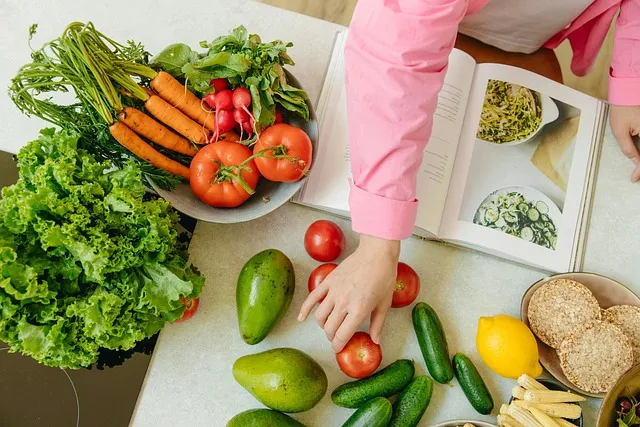Probiotics are live microorganisms living in the human intestines. They provide health benefits by restoring and improving gut flora. Probiotics also help build immunity, strengthen biological processes, fight against inflammation, rejuvenate skin, reduce gastrointestinal discomfort, and treat constipation. The right probiotics must be natural, dairy-based, and include more quantity and diversity of bacteria. Probiotic Indian foods are super healthy for getting a variety of nutrients. They offer a flavorful path to digestive wellness and immune support, blending tradition with modern health benefits. Keep reading to find the list of super healthy probiotic foods in India.
Understanding Probiotics
Before we know about the best probiotics in Indian foods, let's have a basic understanding of what probiotics are. Well, probiotics are beneficial bacteria that are naturally found in the body. They help support a healthy gut and fight off harmful bacteria. Nourishing the gut with probiotics can help maintain digestive health, strengthen the immune system, and enhance nutrient absorption. Their positive effects help reduce bloating, improve digestion, and increase energy levels.
There are two types of probiotics:
-
Bifidobacterium: It is found naturally in the intestine of the human which helps with smooth digestion.
-
Lactobacillus: It is most commonly found in milk and several types of dairy products. Such types of bacteria help treat conditions related to the digestive tract, prevent nausea, and relieve abdominal pain.
Health Benefits of Probiotics
The following are some health benefits of probiotics:
-
Improves digestion
-
Strengthens immune system
-
Reduces body weight
-
Makes skin glowing
-
Improves mood
-
Supports heart health
-
Boosts mental health
You can make the most of these health benefits by adding nutritious probiotic foods to your everyday diet. We have listed the top probiotic foods in India below!
Top 13 Probiotic Foods in India
The following is a list of some of the best probiotic-rich foods in India that you can eat to maintain your health:
1. Dahi or Yogurt
Yogurt is prepared from milk and is a storehouse of active and live eubacteria and bifid bacteria. Homemade yogurt is one of the best natural probiotics in India and is a wealthy source of probiotics as it contains over 250 strains of Lactobacillus bacteria. It is one of the best probiotic Indian foods for your system, containing 10-30 CFU of bacteria. This is because homemade yogurt is fermented for at least twenty-four hours, which allows the usage of most milk sugars and strengthens the probiotic culture. On the other hand, pre-packaged yogurts may not contain enough active and live bacteria. Yogurt makes bones stronger and reduces the risk of polygenic disorders and cancer.
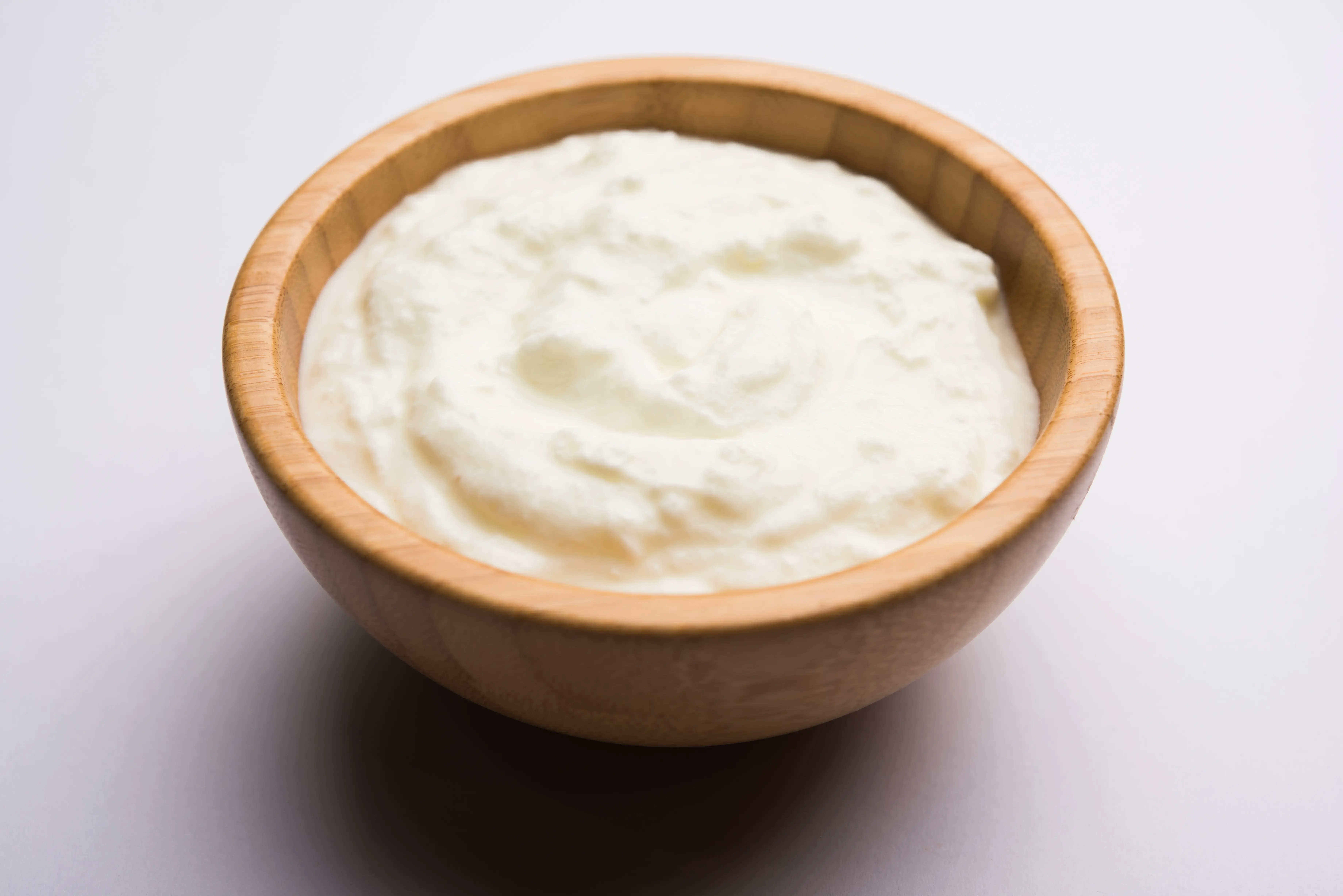
2. Cottage Cheese or Paneer
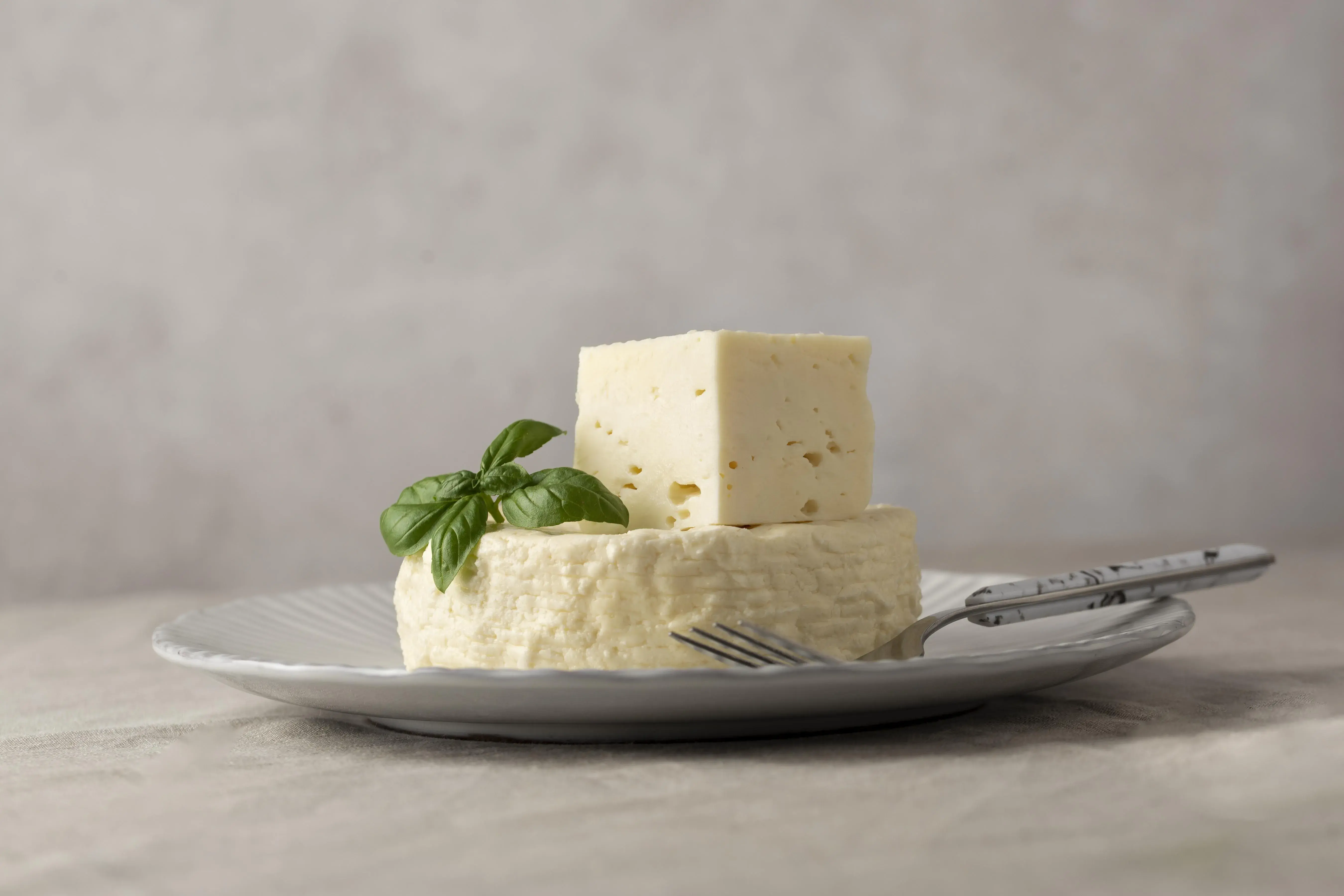
Raw cheese, like cottage cheese (paneer), is an excellent source of probiotics in Indian probiotic foods. On the other hand, processed, cooked, and melted cheese is devoid of bacteria. The high-fat preserve and low cheese acidity nurture healthy bacteria growth and development. Raw and unpasteurized milk yields the best cheese with many probiotic bacteria. Paneer is incredibly important for heart health, bone health, and oral health.
3. Buttermilk
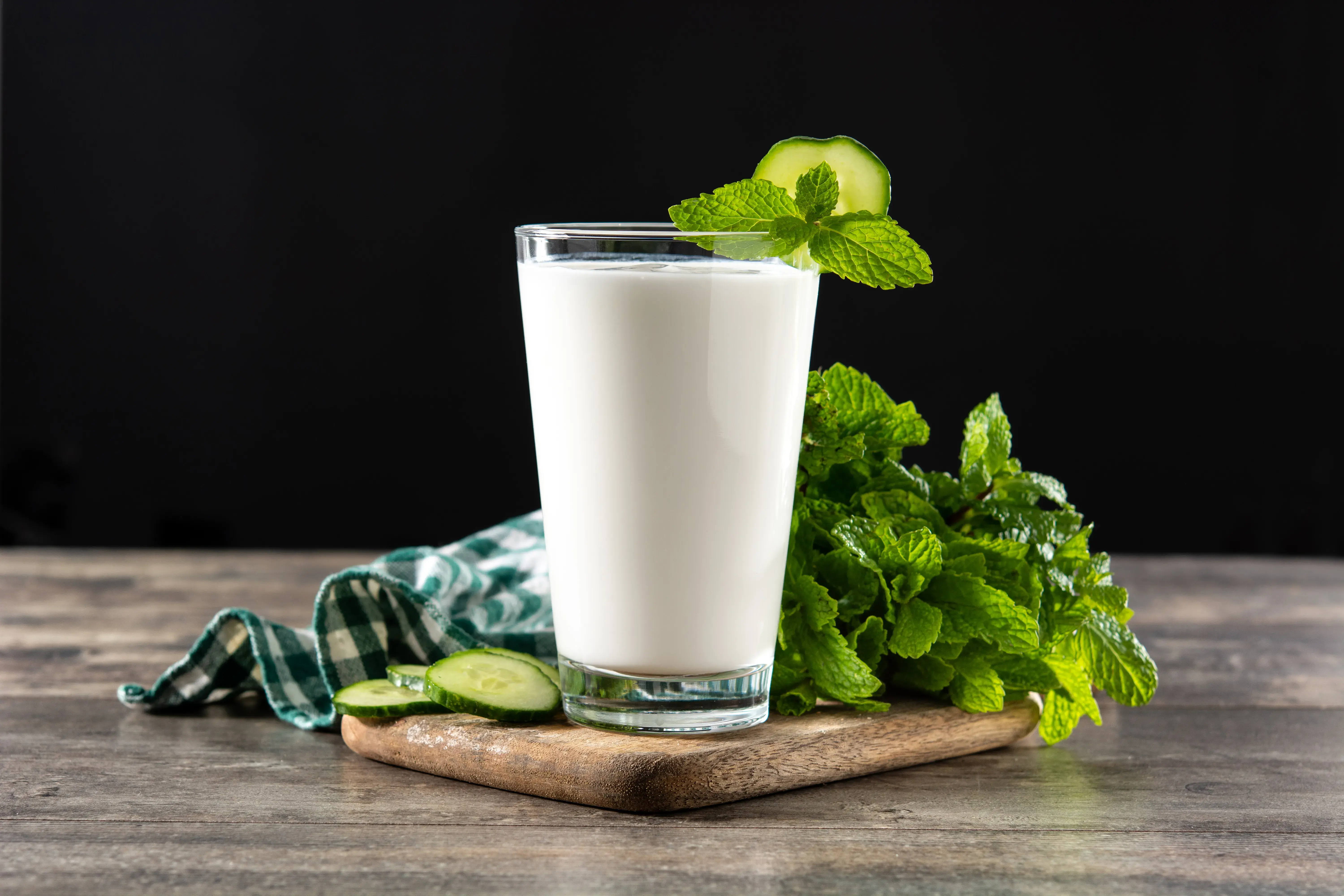
Though buttermilk is low in fat and calories, it contains many vitamins and minerals, such as phosphorus, anti-pernicious anemia factor, riboflavin, etc. Buttermilk is a good carrier of 10-30 CFU of probiotics, especially carboxylic acid, and lactic acid bacteria. The ancient and traditional buttermilk was obtained after creating butter. The leftover liquid is called 'grandma's probiotic' due to the presence of various probiotic bacteria. However, the processed and cultured buttermilk available in supermarkets nowadays doesn't contain any probiotic bacteria.
4. Dhokla
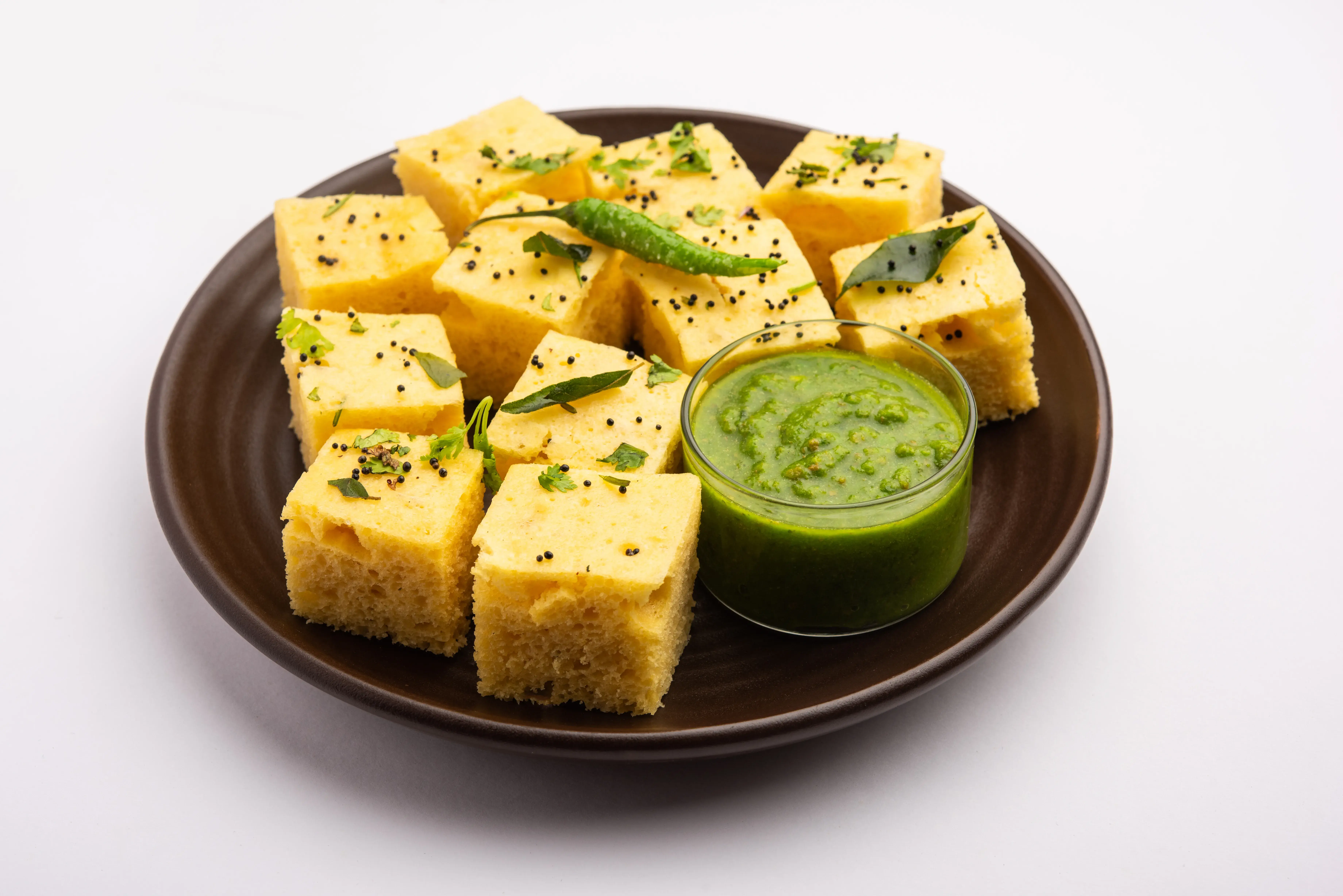
Dhokla is a famous dish created and served in Gujarat. Although the dish is local initially, it is now served in all fancy restaurants and hotels and is considered a healthy and tasty cuisine due to its health benefits. It is also considered one of the important probiotic Indian foods which significantly contributes to gut health. Dhokla is prepared by mixing the batter of fermented gram flour (besan), rice or pulses (dal), and yogurt (Dahi). The fermentation process is responsible for the probiotic nature of the food, as it allows the living culture to settle properly for growth. Yogurt adds an extra coat of probiotic bacteria. Dhokla is preferred as an evening snack and is a bit spicy. It helps to provide instant energy and also helps in weight loss.
5. Dark Chocolate
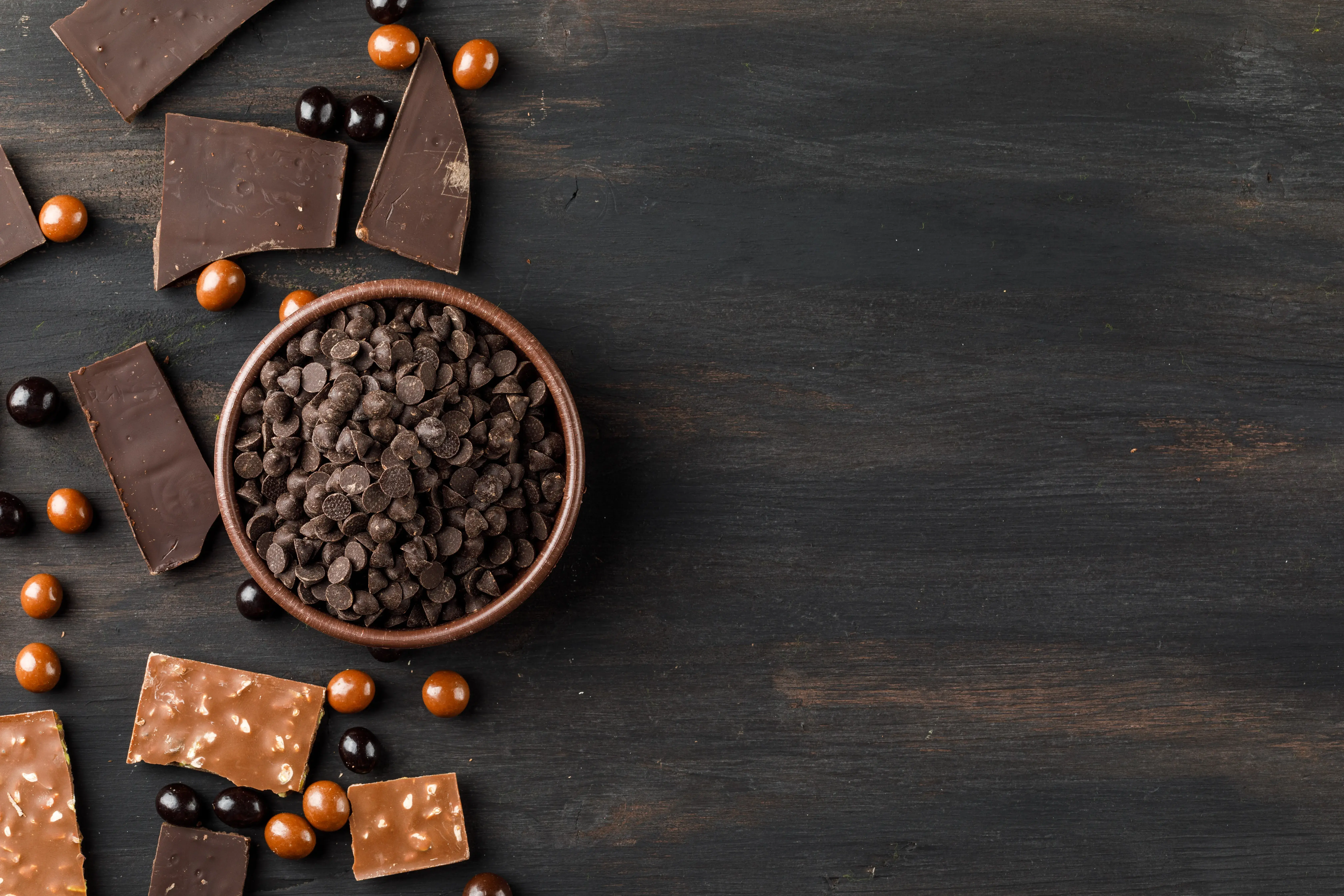
Dark chocolate is a dairy product rich in both quality and quantity of probiotics and antioxidants. Manufacturers add probiotics to dark chocolate and process it at low temperatures. The probiotic food item can contain up to four times the amount of probiotics as other types of dairy. That is why probiotic chocolate bars are stored in refrigerators in supermarkets. A study from the International Journal of Food Microbiology (2010) stated that probiotics in dark chocolate survived through the stomach and small intestine better than those in liquid milk.
6. Pickles or Achaar
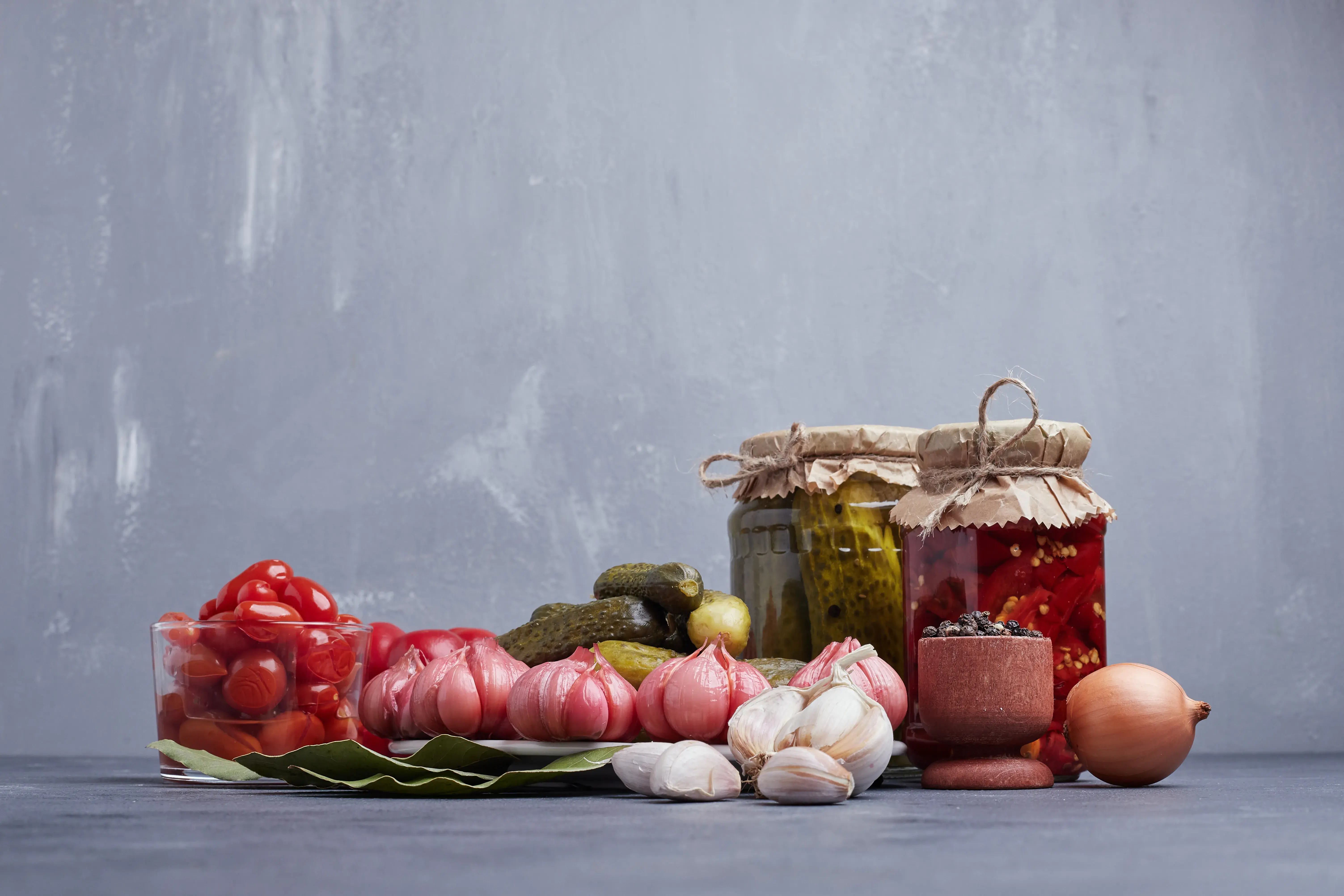
Pickles, known as Achaar in India, are not just tangy additions to meals but also offer probiotic benefits. Traditionally prepared through fermentation, pickles are rich in beneficial bacteria that support gut health. These probiotics aid digestion, enhance nutrient absorption, and strengthen the immune system. Additionally, pickles are packed with antioxidants and micronutrients like vitamins C and K, contributing to overall well-being. Incorporating pickles into your diet not only adds flavor but also promotes a healthy gut microbiome, making them a valuable part of probiotic Indian cuisine.
7. Apples
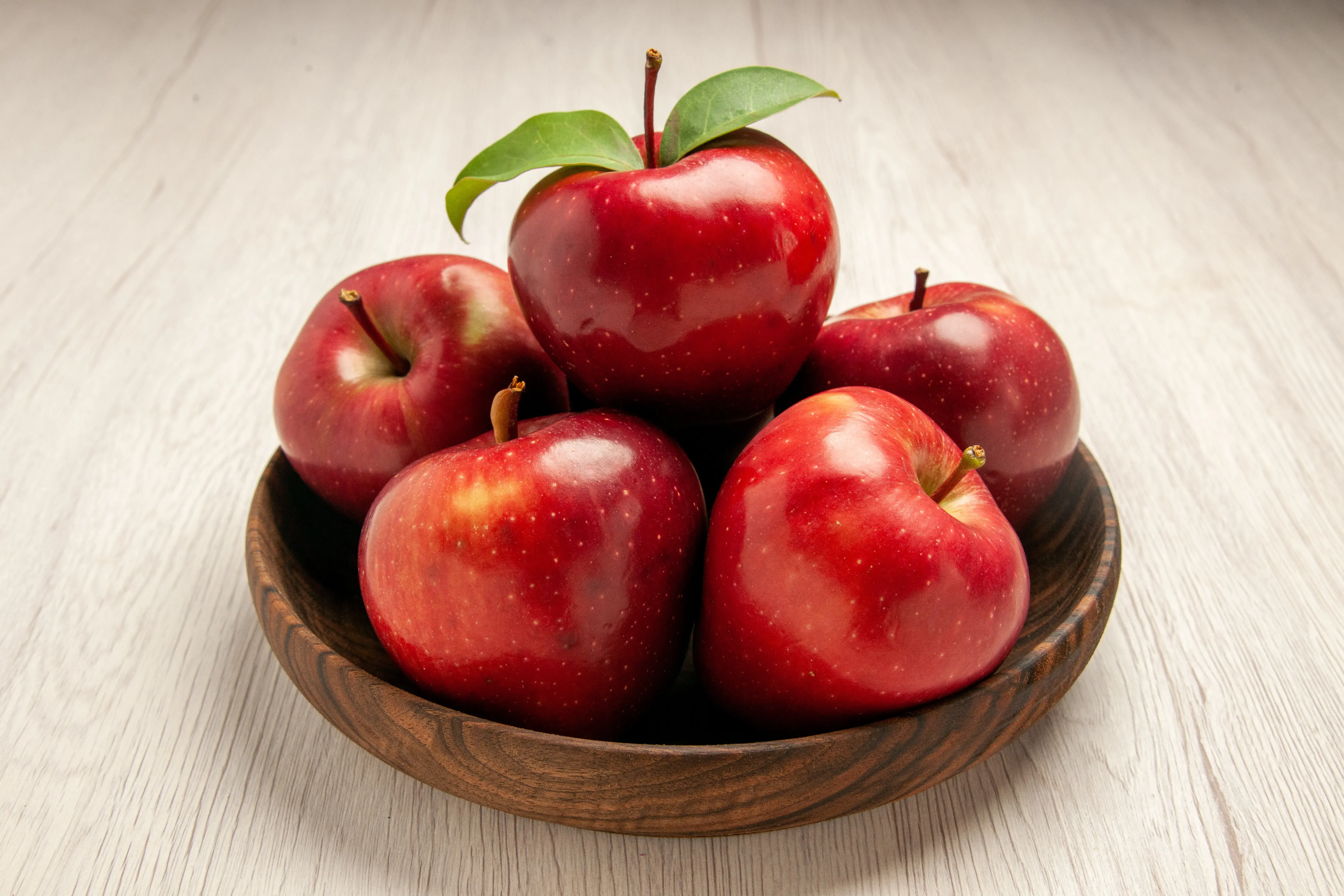
It is rightly said, "An apple daily keeps the doctor away. Being one of the most nutritious Indian probiotic foods, apples are a wealthy source of dietary fibers and probiotics due to the presence of 100 million bacteria. Apples are typically considered a probiotic-rich food that nourishes your gut with good bacteria. The consumption of apples results in the production of short-enchained fatty acids and generates favorable pH conditions that facilitate the growth of good bacteria in the gut.
8. Idli and Dosa
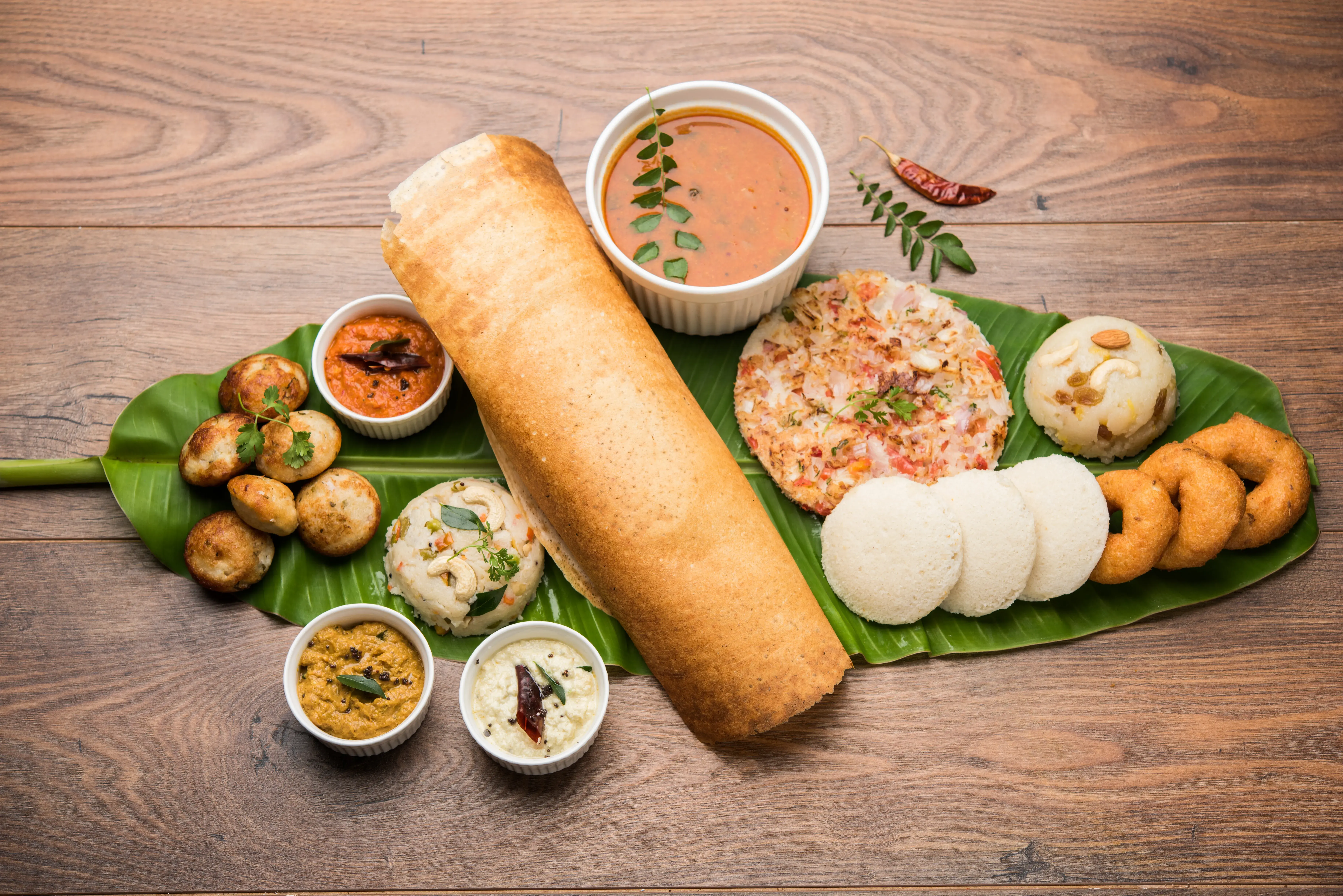
Idli and Dosa are staple foods of Southern India. It comprises fermented hard rice and lentils (Urad dal). It is a decent source of probiotic microorganisms (carboxylic acid bacteria), antioxidants, and fiber. Food is low in fat and calories, so it nurtures the growth and development of living cultures of healthy bacteria. Idli and Dosa are served with chutneys and sambar, made from hard ingredients. These condiments are also a great source of enteric microorganisms. The consumption of Idli and Dosa has many benefits; it boosts the immune system, reduces the chances of stroke, rejuvenates skin, reduces gastrointestinal distress, and promotes weight loss, among others.
9. Kefir
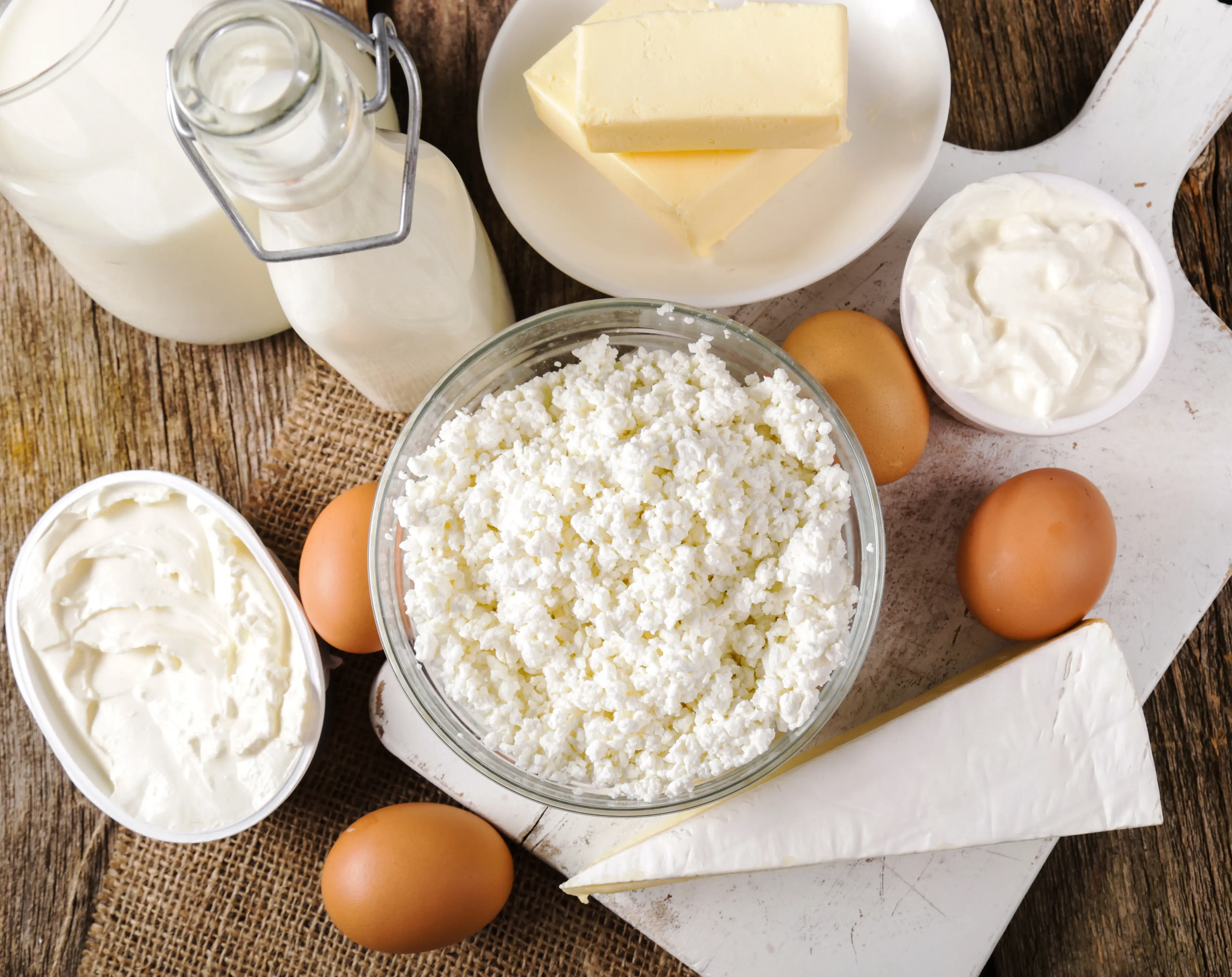
Kefir is derived from the Turkish word 'Keyif,' which means 'feeling good. Kefir is a soured probiotic milk drink containing 61 strains of bacteria. It is a thick and creamy drink with a mix of yeast and carboxylic acid bacteria. It is produced by adding kefir grains to cow or goat's milk, producing up to 10 billion CFU of bacteria. It improves digestion and metabolism, boosts the immune system, and reduces body weight. In addition, it helps to treat digestive disorders like pancreatitis, irritable bowel syndrome, and gastritis.
10. Kanji
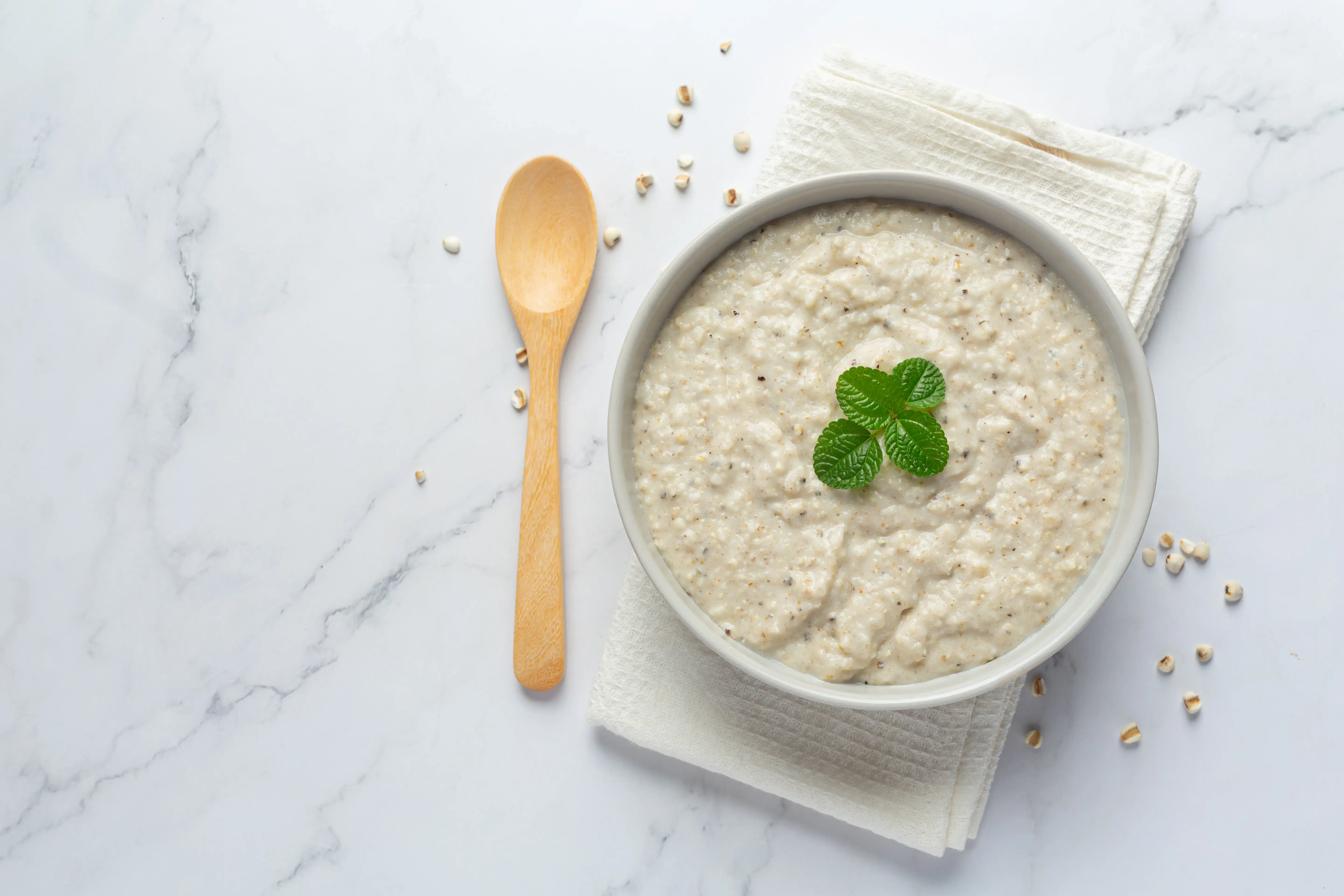
Kanji, or 'rai ka pani,' is a fermented Punjabi drink rich in probiotic bacteria. It contains 1 million CFU and 16 strains of probiotic bacteria. It is made with black carrots and spiced with black salt, ground mustard seeds, and red chili powder. It is also a good source of vitamin K, vitamin C, antioxidants, potassium, and manganese. As per Ayurveda, Kanji should be avoided during the summer season and consumed during the winter and autumn seasons. Kanji aids in healthy digestion, metabolism, and weight loss. Moreover, it prevents eczema in children and protects them from cancer.
11. Pokal Bhaat
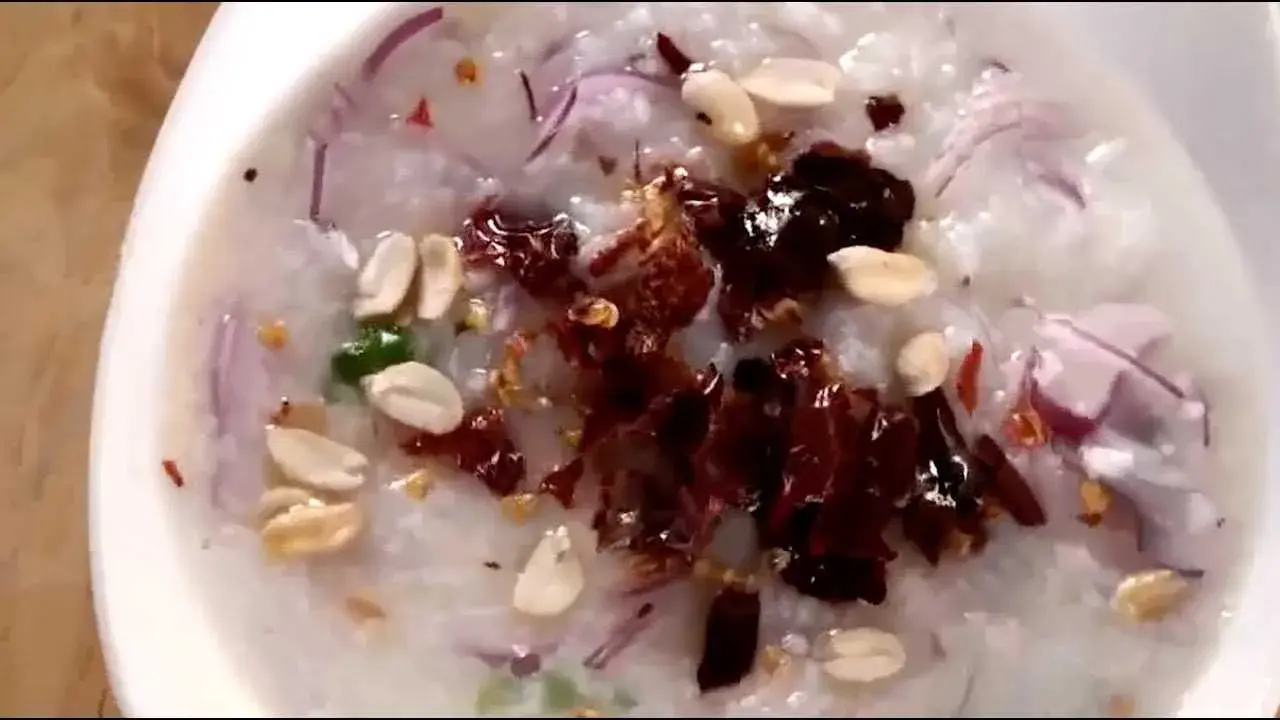
Pokal Bhaat is a common food consumed in the summer in Odisha, Jharkhand, and Chhattisgarh. It consists of partially fermented cooked rice, water, salt, green chilies, curd, mint, cucumber, lemon, fried onions, and cumin seeds. It helps in improving gut immunity due to the presence of live bacteria-rich curd and fermented rice.
12. Soy Milk
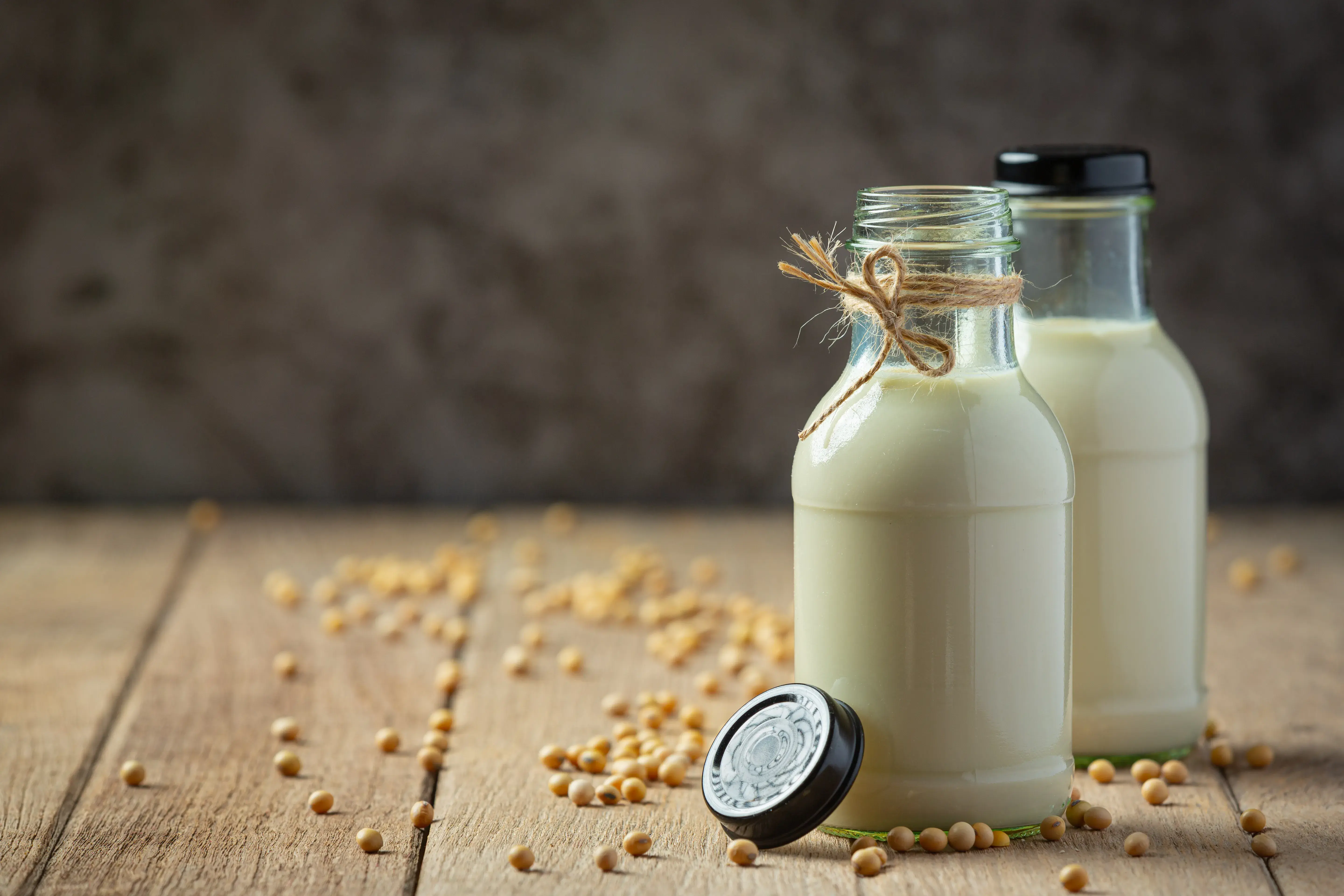
Soy milk is an Indian drink made of hard-pressing soybeans and is the best source of probiotics. It is rich in probiotics and proteins and can be consumed by lactose-intolerant people. One study has found that soy milk helps in improving kidney function in type 2 diabetic patients with nephropathy. It contains Lactobacillus Plantarum A7, which reduces albumin in urine, a common symptom of kidney disease. It is one of the most effective probiotic food items that also improves the glomerular filtration rate (GFR) of kidneys, reduces bad cholesterol, and helps weight loss. Additionally, it provides antioxidants, and omega 3 & omega 6 fatty acids to strengthen blood vessels.
13. Whole Wheat Bread
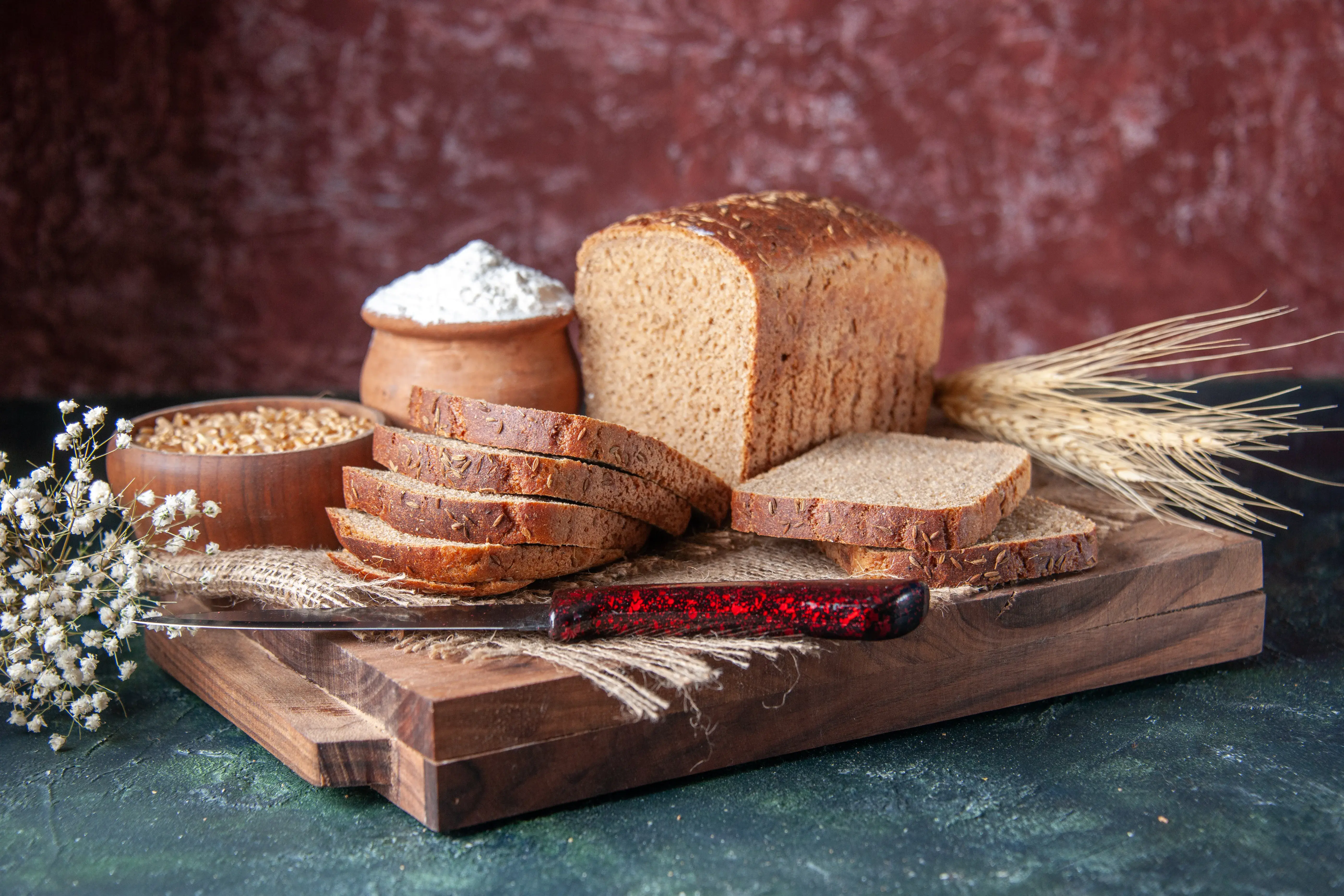
Bread is rejected by many people as an unhealthy source of food; the opposite might be true, according to many studies. Whole wheat bread contains soluble fibers fermented by gut bacteria to form small chains of fatty acids that are good for gut health. Therefore, it helps increase the number of good bacteria like bifidobacteria and Lactobacillus in the gut.
Whole wheat bread is devoid of fat and contains a lot of protein, vitamins, and minerals. According to a study in the British Medical Journal, people consuming whole wheat bread are at lower risk of coronary artery disease and cardiovascular disease, thus, reducing the chances of stroke.
Final Thoughts
The simplest way to maintain a healthy gut is to include nutritious microorganism-containing dishes in your daily meals. The above-mentioned probiotic Indian foods are the top foods that can help boost your immunity and allow you to digest food more efficiently. The probiotic properties of these Indian foods make them popular choices that are usually available everywhere. You can use your ideas and create original recipes with these "Probiotics foods in India" to make them even more interesting and delicious.
Frequently Asked Questions
What is prebiotic?
Prebiotics are dietary fibers that feed the friendly bacteria in your gut, promoting their growth and activity.
What are the benefits of probiotic foods?
Probiotic foods can enhance gut health, support the immune system, and aid in digestion.
What are some examples of natural probiotic foods?
Kimchi, sauerkraut, yogurt, apples and miso are natural sources of probiotics.
What foods are good probiotics?
Yogurt, kefir, sauerkraut, and kimchi are examples of foods rich in probiotics.
What is the meaning of probiotic?
Prebiotics are dietary fiber that feed the friendly bacteria in your gut, promoting their growth and activity.
Is greek yogurt a probiotic food?
Yes, Greek yogurt is a probiotic food, containing beneficial bacteria that support digestive health.
Is paneer a probiotic or prebiotic?
Paneer is neither probiotic nor prebiotic as it doesn't contain live beneficial bacteria nor does it serve as food for beneficial bacteria; rather, it's a fresh cheese high in protein and calcium.

Reviewed by





